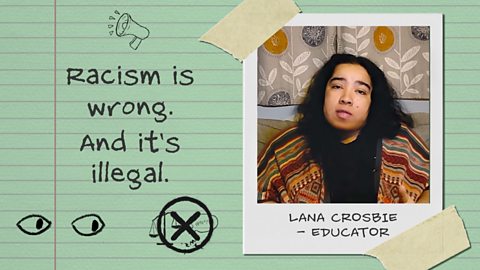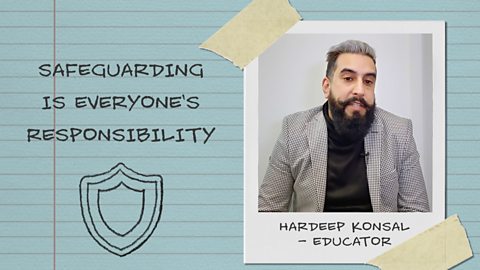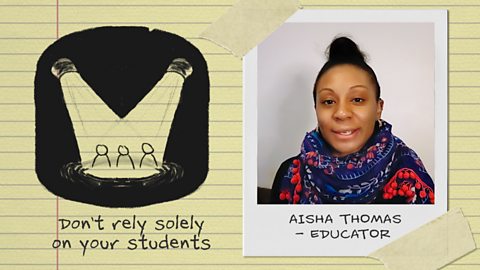This short film explores some of the challenges faced by young people arriving into the UK as refugees, with advice from students and educators on how to support them.
Notes are compiled by film-maker and equality, diversity and inclusion consultant (ED&I) Dr Mena Fombo and film-maker Michael Jenkins with teacher consultant Karuna Duzniak, an Assistant Headteacher at an inner-city school who is passionate about supporting diversity, equity and inclusion (DEI) within education.
The tips:
Translation is essential
In the film, students reflect on the crucial role of translators in helping them understand exactly what they should and shouldnβt do at school.
Assistant headteacher Karuna Duzniak suggests providing a dictionary and allowing students to use translation apps on their mobile phones: βTranslation is important for refugee children because they need to be able to understand whatβs happening in the classroom.β
It wasnβt standard practice to use mobile phones in Karunaβs school, but this technology was later acknowledged as a way to support children's learning and communication with their peers. She says: βAlthough we have a school-wide ban on using mobile phones, weβve allowed students to use the translating app so they can make friends with each otherβ¦ and help the students to feel settled and welcome in our school.β
Acknowledge us
Karuna Duzniak works daily with refugee children and shares the importance of student voice: creating opportunities for students to give feedback and, most importantly, listening to what those students are saying.
She says students really want to be respected and acknowledged in class, and one way of doing that is by ensuring all of their teachers acknowledge who they are and give them space to be heard: βTheyβve all got a story to tell, and they really want every teacher in that school to hear that story.β
Share cultural norms
In this section of the film, young people speak about the cultural differences they first experienced.They explain how some actions and words seen as friendly and standard practice in the UK would be seen as insulting or inappropriate in their home countries. Without initial explanation students sometimes felt insulted or were upset by those actions.
Examples include someone giving a thumbs up in the corridor, which in some cultures indicates a swear word. It left the young person wondering if heβd been doing something wrong in his first week.
Karuna explains how essential it is to ensure that we share cultural norms, even around things like how to walk around the school, what to carry in your school bag or what happens at break time. Many of this is new and different from what that young person has experienced before.
Speak clearly
In the film Karuna talks about the pace at which teachers should teach and speak in class and the importance of speaking slowly and clearly (not loudly) to refugee students.
Karuna wants other teachers to understand that speaking loudly can be insulting to young people. She says: βSlow down, think about what you are saying and donβt use slang or regional specific words.''
Think inclusive learning
The film finishes with advice about thinking inclusively when teaching. In particular, Karuna Duzniak speaks about representation, avoiding stereotypes and challenging narratives with the use of resources.
Karuna says: ''Make sure that the role models that you use and the pictures you use are representative of the class you have and also of society as a whole.''
Related links
- ΒιΆΉΤΌΕΔ Teach PSHE KS2/KS3 resources: Seeking Refuge: Real life stories of young people fleeing their homelands
- ΒιΆΉΤΌΕΔ Newsround: World Refugee Day: What is a refugee?
- ΒιΆΉΤΌΕΔ Bitesize GCSE: Economic migrants, refugees and asylum seekers, 1945 β present
- ΒιΆΉΤΌΕΔ News: News about refugees and asylum seekers
The ΒιΆΉΤΌΕΔ is not responsible for the content of external websites. By clicking the link to access the external website you will be redirected. Please note that the ΒιΆΉΤΌΕΔ is not the data controller of the personal data you enter into the external website and it is not responsible for the services provided by any external organisation. When using an external website, you are subject to their Terms and Conditions and Privacy Policy.

Mixed heritage allies. video
Issues of identity and heritage are explained by students and teachers seeking a more inclusive classroom experience.

South Asian allies. video
South Asian students share their experiences of prejudice and its impact on their learning experience, and offer suggestions on how to support students.

Black allies. video
Black students and teachers share their experiences of racism in school and offer tips for safeguarding students.
